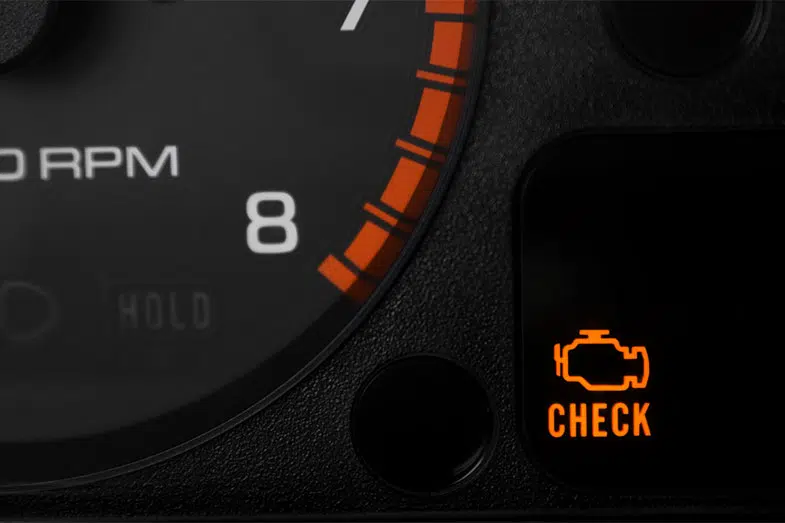Precise air filtration is essential to the optimal operation of your vehicle. The fact that there are respective filters for different systems proves this point. Engine and cabin filters, in particular, serve as your car’s first line of defense against contaminants – they should be kept clean and functioning at all times and replaced as needed. But just how often should you change your air filters?
Change your air filter every 10,000 to 30,000 miles or 12 months (whichever comes first). Depending on driving habits, riding conditions, and vehicle make and model, you may need to replace your air filter sooner than the usual schedule.
This proposed timing does not account for aftereffects of premature air filter clogging, such as misfiring, reduced gas mileage, or poor engine performance. And if dusty, rural areas in Arizona is your track of choice, filter replacement may need to be done every 6,000 miles. This may seem like a lot, but do not worry – this article has got you covered on the basics of when to change air filters in your car.

How Important is Air Filtration?
For any vehicle to perform at its best, it needs to have the right amount of air and fuel. But for this to work, air intake needs to be sufficient, clean, and contamination-free.
This is where engine and cabin air filters come in. Each of these filters is designed to protect a specific vehicular component/system or the person using it. The engine filters block harmful debris from entering the car’s power mill, while intake filters take care of air quality inside the cabin.
Engine Air Filters vs. Cabin Filters
So, when determining how often to change air filters in your car, there are 2 out of 4 filter types you need to consider – engine and cabin air filters (view on Amazon). Let’s examine them more closely and differentiate between the two in this section:
Engine Air Filter
An engine air filter keeps the air entering your vehicle’s power mill pollutant-free. In turn, this fresh air intake aids in your car’s optimal performance by ensuring a balanced air-fuel ratio, proper combustion, and the absence of ignition problems.
They come in round, conical, or panel shapes and are usually covered by sturdy housing material. When well-maintained and replaced promptly, these filters keep serious mechanical problems at bay.
Cabin Filter
Conversely, a cabin filter (a.k.a. intake filter) purifies the air you breathe in by keeping contaminants like exhaust fumes, pollen, mold pores, and other allergens out of the cabin. It also keeps gunk from clogging up your car’s air conditioning system.
As defined by VehicleScene.com, a cabin air filter can strain out up to 99% of airborne pollutants over 3 µm in size and are composed of either textile or paper.
It is typically located behind the glove box, beneath the hood, or under the dash (at the mouth of the heater box). It may prove more challenging to access and service than engine air filters.
On average, this filter requires replacement approximately every 15,000 to 30,000 miles (or as suggested by your car’s manufacturer).
Recommended Air Filter Change Intervals
Online references reveal different recommendations on how often to change cabin air filters and engine air filters. Automotive experts and blog sites base the timing on several factors, including driving habits, riding conditions, car make, year, and model. Though not all-encompassing, the below figures should guide your cadence regarding air filter changes:
| Vehicle | Interval |
|---|---|
| Motorcycles | 10,000 to 20,000 miles |
| ATVs | 15,000 to 30,000 miles or every 50 hours (depending on terrain and riding speed) |
| Sedans, SUVs, minivans, and light trucks | 10,000 to 45,000 miles or every 12 months |
| 4×4 wagons and UTEs | 12,000 to 15,000 miles |
| Trucks | 12,000 to 30,000 miles |
| Buses | 6,000 to 15,000 miles |
Since they are simple devices solely designed to screen out air pollutants and lack mechanical components, the severity of damage air filters can incur mainly depends on external factors. These include large objects and excessive dirt/grime – on top of the type of terrain, driving patterns, and vehicle age and use/abuse. How these factors play determine the lifespan of air filters before warranting replacement.
11 Signs of a Bad Air Filter

There are several ways to determine if it is time for an air filter replacement or cleanup. Visual inspection is usually the first thing we, owners, do to confirm if our filters have gone bad or are clogged.
As long as we know what indicators to watch out for, establishing how often to change the cabin air filter in vehicles should be pretty straightforward. For this habit to become second-nature for you, here are some of the symptoms (and aftereffects) you need to get familiar with:
1. Unusual Dark Color
Depending on the type your vehicle uses, a relatively new (or old but clean) air filter could have a plum, white, or off-white color when inspected.
Naturally, your filter will get progressively darker the more it screens debris and other contaminants from entering your engine. However, there are situations where this may happen sooner than expected. And when it does, it is high time to replace your air filter with a new one or thoroughly clean it if it is the reusable type.
Note: Continuing to use air filters with a thin film of dirt is totally up to your discretion. If the said layer is superficial, you can easily clean the filter by tapping it to shake off loose debris. However, replacing air filters caked with dirt and other pollutants is non-negotiable.
2. Poor Acceleration
The right amount of airflow getting into the engine cannot be emphasized enough, as it gets a vehicle running optimally. However, the reverse is true if filters are clogged, as they end up restricting adequate air supply from reaching the combustion chamber.
When this happens, vehicles cannot produce sufficient power to operate at an acceptable level. So, the next time your car feels sluggish or under-powered, check if you need an air filter change.
3. Reduced Fuel Economy
An all-too-familiar effect of having clogged air filters is an engine running rich. This is brought about by your car’s power mill trying to compensate for inadequate air supply with increased fuel consumption.
When air filters are dirty, the process of getting an ample amount of clean air into the combustion chamber becomes more challenging and tedious (not so much for fuel-injected vehicles with onboard computers regulating air-fuel mixture). As a result, engine flooding occurs, fuel efficiency is compromised, and gas mileage is reduced – alongside a noticeable lack of power.
4. Strange Engine Noises
Sputtering or popping noises point to several issues – one of them being insufficient airflow getting to your vehicle’s combustion chamber due to a clogged filter. The sound produced is atypical of the hum of a well-running engine and can be observed when your car is idle or coming to a halt.
Sometimes, these coughing noises are accompanied by a slight whistling sound (caused by excessive clogging or buildup on the filter screen) or shuddering (due to an imbalanced air-fuel ratio).
5. Misfiring
Aside from restricting airflow, a clogged air filter also results in the formation of soot residue. When this residue mounts up the spark plug, the latter consequently fails to deliver a proper spark – thus, leading to start-up issues or engine misfires.
When you experience rough jerking at idle or when accelerating, make sure to check if your spark plug is fouled and needs replacing. Remember to determine the same with your air filter.
6. Engine Stalling or Failing
In some cases, misfiring (due to a lack of combustion with one or all combustion chambers inside a vehicle) can escalate to engine failure. This takes place when the effects of bad air filters are not immediately addressed, causing engine misfires or stalling to become persistent and internal engine components to incur severe damage.
7. Rough Idling
Not to be confused with jerking at idle, this symptom usually indicates a bad fuel filter but is also caused by an air-fuel imbalance in a car’s combustion chamber – a negative effect of having clogged air filters.
Automobiles usually have between 900 and 1,100 RPM when turned on and left on standby. But because the amount of quality air inside the engine is limited, the number of revs a car makes at idle abnormally shoots up (or down) and is thrown out of order.
8. Illuminated CEL
Most issues would set off a vehicle’s Check Engine Light. As for clogged air filters, the CEL goes off due to high carbon deposits resulting from excessive burnt fuel and inadequate air supply. Because the trigger for an illuminated service light can be just about anything, it is best to use an OBDII scanner like an Autel MK908P Automotive Diagnostic Scan Tool (view on Amazon) to verify if the problem source is indeed a plugged filter.

9. Poor HVAC Efficiency
Air filters play a significant role in a car’s Heating, Ventilation, and Air Conditioning system. That said, clogged filters would most likely be the culprit the moment your blower motor starts malfunctioning or a noticeable increase in cabin temperature occurs. They also disrupt the balance of your vehicle’s heating and cooling functionality. Ultimately, a defective HVAC system leads to a loss of airflow and a dramatically less comfortable riding experience.
10. Black Smoke or Glowing Exhaust
Another setback of not having enough air supply in the combustion chamber is that the process of burning fuel is left incomplete. This unburned fuel then manifests either as soot-like smoke or as a glowing red exhaust pipe when subject to heat in the exhaust system. It is important to change dirty air filters straight away as continued smoke or flames expelled from your car’s tailpipe increases toxic or harmful emissions.
11. Strong Gasoline Smell
Just like flames shooting out of a vehicle’s exhaust, a lingering gasoline smell (or a musty smell coming out from the vents) signifies unburned fuel leaving the engine – meaning not enough oxygen is entering the vehicle’s carburetor or fuel injection system. Furthermore, it is a very reliable indicator of a soiled air filter. But be careful not to make assumptions about the cause of this strong odor, as the smell of gasoline can also mean a leaking fuel tank.
It is crucial to heed early signs of faulty or dirty air filters due to their role in permitting clean, uncontaminated airflow into your car’s engine. Under ideal circumstances, it would be alright to follow the usually recommended filter change intervals. But on the occasion that any of these symptoms recurringly happen, immediately replace your stock air filters to prevent adverse vehicle performance and serious engine damage.
Ways to Prevent Premature Air Filter Damage
In addition to noting the above symptoms, do the following steps to maintain high air quality inside your car cabin:
- Make sure to vacuum upholstery, mats (view on Amazon), and the carpeted floor of your vehicle.
- In-cabin surfaces that accumulate dust or come in contact with the body – like the steering wheel, shift stick, console, and door panels (among other things) – should be wiped down regularly.
- To prevent moisture inside your vehicle that can lead to mold, ensure weather-stripping for all doors and windows are properly sealed, and spills are immediately cleaned up.
- Air out the inside of your car now and then to ensure no moisture settles in and to prevent mold formation – this is especially important when storing your vehicle for extended periods.
Conclusion – How Often Should You Change Your Air Filter in Your Car?
Knowing when to change your engine or cabin filters appropriately spells a night-and-day difference in your vehicle’s ventilation system functions and overall performance. This capability entails having a good grasp of telltale signs that directly point to clogged air filters.
Your service manual should be your best guide for filter change schedules, given an ideal setting. But realistically, encountering the bad-air-filter symptoms in this article – alongside taking into account a slew of other factors – ultimately decides when it is right to replace your trusty air filters with new ones.
Kris is an avid off-roader and outdoor enthusiast who loves to brave the elements and take on challenging terrain. He also enjoys sharing his passion and knowledge with others so that they, too, can appreciate the ride.
About Kris
